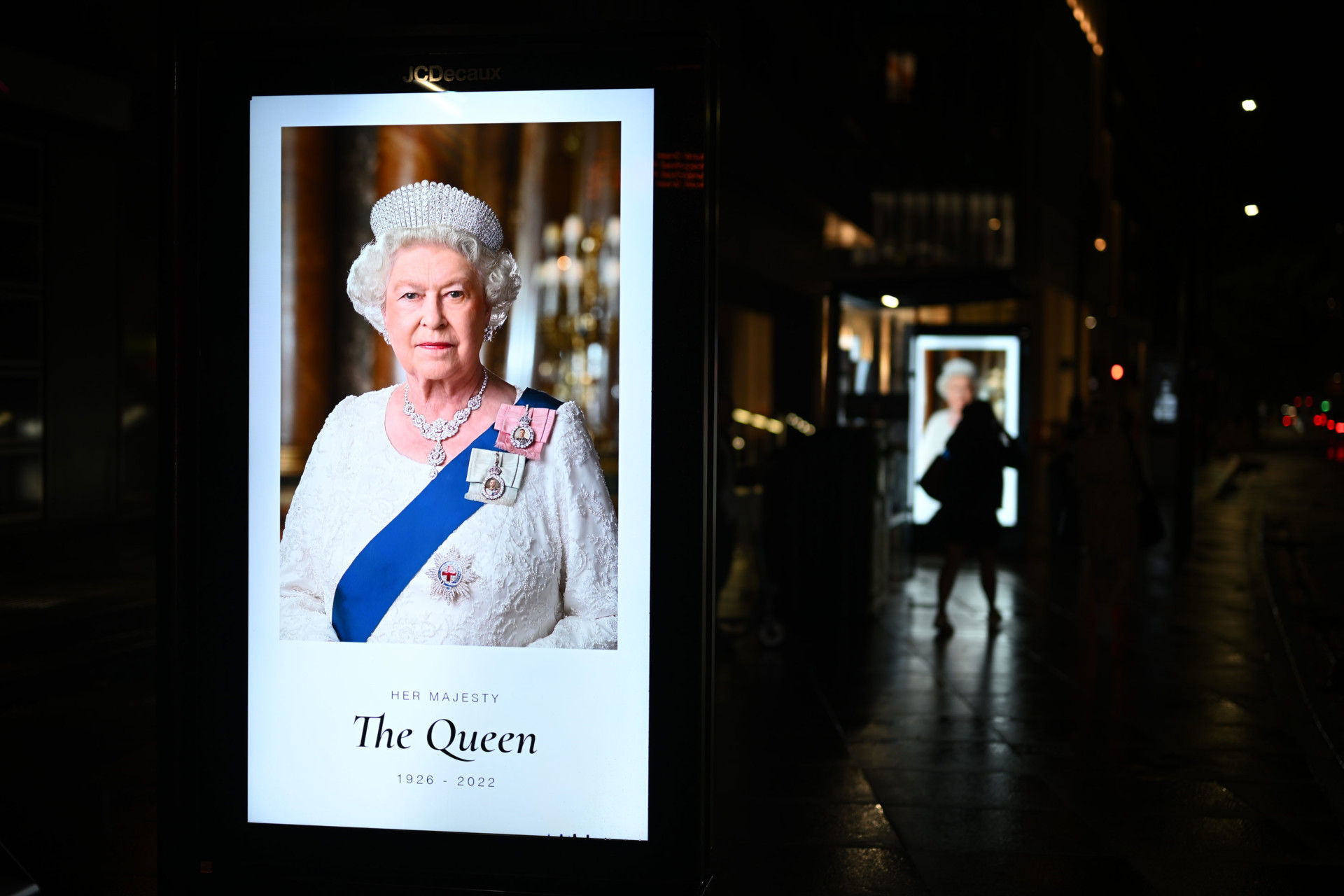There is the usual sprinkling of tourists when I arrive at Buckingham Palace at 7 p.m., just a few hours after Queen Elizabeth II died, having reigned for 70 years from this building at the heart of London. It is raining, so there are fewer tourists than usual, but while I stand, then walk along the railings in front of the broad facade of the palace, more trickle in, some carrying bunches of flowers that they wedge into the wrought iron gates or lay on the ground in front. I hear a journalist ask a man for a comment after he places the roses he has brought. He is silent, struggling for words, then manages, “I’m … reflecting. Please give me a minute. Sorry.” It feels like grief, and as I look around, I witness more. One French child is crying. “Sorry,” her mother whispers to me, and I don’t know whether the apology is because the queen has died or because her child is crying, and the child’s flurry of French does not enlighten me.
But mostly people are more curious than grief-stricken; they’ve gathered to mark the occasion, and more are coming from every direction, by foot, bike and car, black cabs constantly dropping off people who are clutching umbrellas and bouquets. I try to tell my friends whom I’m meeting for dinner that I’m going to be late, but my messages are not getting through — and Twitter stops loading, and emails don’t send; the system is overwhelmed with the numbers of people at the scene, perhaps. Because at this point the trickle of those paying respects has swollen so that it’s hard to find a way through the crowds, and the mood turns almost celebratory with the sense of community, people cheering and clapping Her Majesty, lighting candles and laying flowers. There is affection here for the only monarch that most of us have ever known.
There’s also incredulity, a surreal sense that although the queen was 96, she simply couldn’t have died, despite the rumors that had been circulating all day. It was clear there was some bad news delivered to politicians in the House of Commons this morning, and an announcement just after midday on the BBC to say that doctors were “concerned” about the queen’s health, followed by a BBC News Special rather than regular programming, were signs that worse was to come.
WhatsApp messages began pinging with greater intensity at some point during the afternoon, one journalist after another saying the BBC was about to announce her death. Sitting in the Great Court at the British Museum, I joined an editorial meeting, as we at New Lines talked through how to cover the inevitable news when it comes, finding it hard to focus on anything else.
I messaged a friend at the Foreign Office whom I was to meet for coffee, assuming he’d be engaged given the events of the day, but far from it — apparently the civil service is too leaky to be entrusted with such news, so he was at a loose end. We went to a pub in Westminster, positioning ourselves so that I could see the screen with the BBC coverage, and he could see the coverage with Sky — Sky, of course, broke it, and the pub went silent, encouraged by the proprietor, who turned up the sound on the TV tuned to the BBC. Everyone in the pub stood in a spontaneous show of respect, and when the words came, in the Welsh tones of national treasure newsreader Huw Edwards, it was unexpectedly moving. The national anthem was greeted in utter silence and tears.
It is unclear what this transition means for the country, the Commonwealth and the globe. But all of this is in the future, and for now, the crowds gather at royal residences around the country, laying flowers and paying respects.



